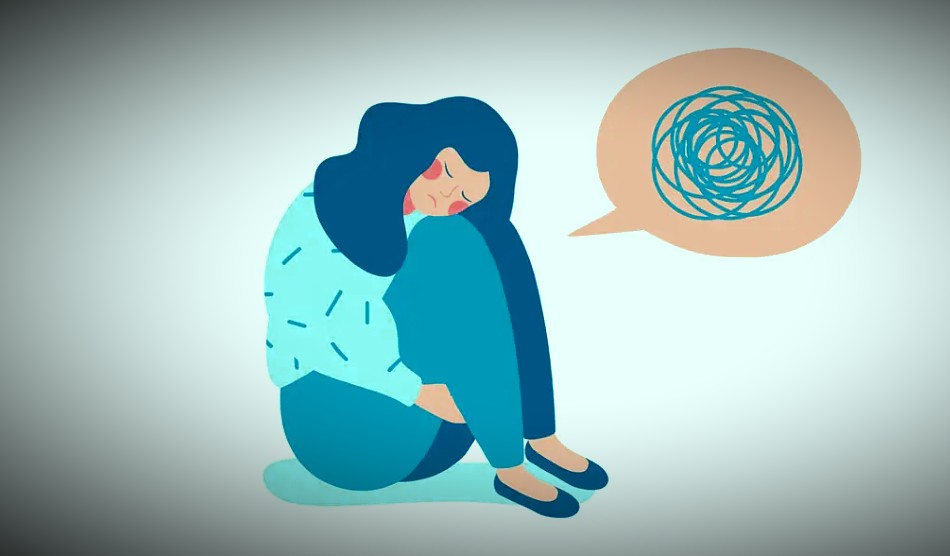Living with anxiety and depression can feel like being trapped in a never-ending storm. But hope and healing are possible. Two therapy modalities, Internal Family Systems (IFS) and Eye Movement Desensitization and Reprocessing (EMDR), offer a unique and effective approach to addressing anxiety and depression. In this blog, we'll delve into the transformative power of IFS and EMDR therapy, and how a counselling therapist can guide you on the path to healing and mental well-being.
Anxiety and depression are two of the most prevalent mental health challenges, affecting millions of people worldwide. They can be incredibly debilitating, impacting not only your mental and emotional well-being but also your physical health and daily life.
Anxiety is characterized by excessive worry, fear, and apprehension. It can lead to physical symptoms like a racing heart, sweating, and muscle tension. Depression is marked by persistent sadness, a loss of interest in activities, and feelings of hopelessness. It can manifest physically through fatigue, changes in appetite, and sleep disturbances. These conditions can be complex and often rooted in various life experiences, making them challenging to address. However, IFS and EMDR therapy provide unique tools and techniques to navigate these issues effectively.
Internal Family Systems (IFS) therapy is an innovative and holistic approach to healing anxiety and depression. Developed by Dr. Richard Schwartz, IFS recognizes that our minds are composed of different parts, each with its own emotions and motivations. This therapy helps individuals:
Understand Their Internal System
IFS allows individuals to explore and understand their internal "parts." By identifying the various parts of their personality, they can recognize which parts contribute to anxiety and depression and which are aligned with healing and growth.
Foster Self-Leadership
Therapy for anxiety and depression helps individuals become "self-led." This means that instead of being controlled by anxious or depressive parts, individuals learn to lead from their true self, which is naturally calm, compassionate, and confident.
Heal Parts That Suffer
In therapy, individuals work with their therapist to heal the suffering parts. By addressing the pain and trauma that these parts hold, individuals can alleviate symptoms of anxiety and depression.
Integrate Parts
Over time, the goal of IFS therapy is to help individuals integrate their various parts into a harmonious whole. This process promotes emotional balance, resilience, and a sense of well-being.
Eye Movement Desensitization and Reprocessing (EMDR) is another powerful modality in therapy for anxiety and depression that has shown remarkable success in treating anxiety and depression. EMDR therapy helps individuals:
Process Trauma
EMDR was initially developed to treat trauma, but it has proven to be effective in addressing a wide range of psychological issues, including anxiety and depression. The therapy process allows individuals to reprocess traumatic memories and reduce their emotional charge.
Reduce Negative Beliefs
Through therapy, individuals can identify and reframe negative beliefs about themselves, which often contribute to anxiety and depression.
Enhance Coping Mechanisms
EMDR helps individuals develop healthier coping mechanisms and strategies to manage their anxiety and depression symptoms.
Improve Emotional Regulation
This therapy promotes emotional regulation, helping individuals regain control over their emotional responses and reducing the intensity of their anxiety and depression symptoms.
Engaging with a counselling therapist proficient in IFS, EMDR or other kinds of therapy represents a pivotal step towards healing from the burdens of anxiety and depression. This therapeutic journey unfolds through a series of structured phases and dynamic collaboration between therapist and client, offering a multifaceted approach that can be transformative.
The therapeutic process commences with an in-depth assessment, where the therapist evaluates the severity of your condition and its impact on your daily life. Subsequently, a treatment plan is meticulously devised in conjunction with the therapist, taking into account your specific needs and preferences. This plan may involve the application of IFS, EMDR, or a harmonious fusion of both, tailor-made to address your distinctive requirements.
Therapeutic sessions are marked by the skillful implementation of these empirically validated techniques, empowering you to effectively manage and confront your anxiety and depression. Essential to this endeavor is the collaborative partnership between you and your therapist, emphasizing the importance of your active involvement and contributions. Regular progress assessments ensure that your treatment plan remains dynamic, allowing for adjustments as needed..
Anxiety and depression don't have to define your life. Through the transformative power of therapy for anxiety and depression, provided by a skilled counselling therapist, you can embark on a journey toward healing and mental well-being. It's a path of self-discovery, emotional resilience, and lasting transformation, ultimately leading to a happier, healthier you. As you embark on this healing journey, expect to witness tangible changes in your well-being. Gradually, you will observe a marked reduction in the severity of your anxiety and depression symptoms. Simultaneously, your emotional resilience will grow, equipping you with the tools to navigate life's challenges more effectively. Furthermore, therapy will provide you with profound insights into the underlying causes of your anxiety and depression, affording you greater control and comprehension of these conditions. Ultimately, this transformative process will help you rekindle your self-confidence and rediscover your belief in your capacity to lead a fulfilling, joyful life.

